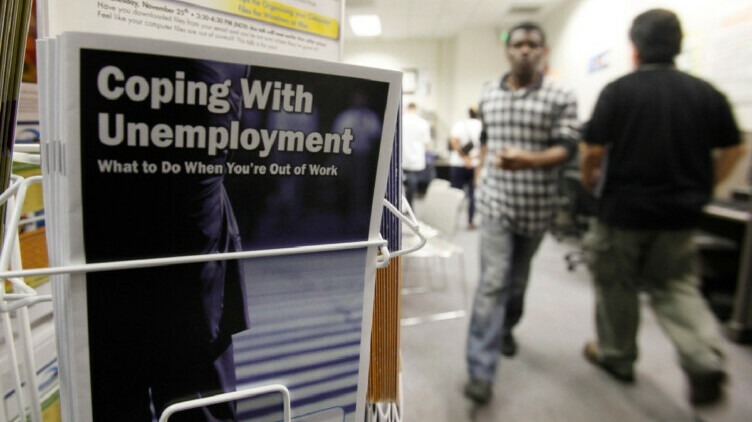Fraudsters Steal $135 Billion In Fake COVID19 Jobless & Unemployment Claims
By SCARS Editorial Team, portions Washington Post
Fraudsters Stole $135 Billion in Unemployment Benefits During the Pandemic
A fraudster’s picnic! The COVID-19 pandemic caused widespread economic disruption, leading to millions of Americans filing for unemployment benefits. Unfortunately, this also created an opportunity for fraudsters to steal billions of dollars in government aid.
According to a report by the Government Accountability Office (GAO), fraudsters may have stolen as much as $135 billion in federal unemployment aid during the pandemic. This represents roughly one out of every seven dollars set aside for jobless Americans.
The GAO’s estimate is based on a sampling of federal data, and the agency acknowledges that the “full extent of [unemployment] fraud during the pandemic will likely never be known with certainty.” However, the report provides a detailed overview of the methods that fraudsters used to steal billions of dollars in government aid.
One common method was to file fraudulent claims using stolen identities. Fraudsters would gather personal information from victims, such as their Social Security numbers and birthdates, and use this information to create fake unemployment claims.
Another common method was to use identity theft software to generate fake identities. This software can create realistic-looking documents, such as driver’s licenses and birth certificates, that can be used to file fraudulent claims.
Fraudsters also used phishing scams to trick people into giving up their personal information. In these scams, fraudsters would send emails or text messages that appeared to be from legitimate government agencies. The emails or text messages would often contain a link that, when clicked, would take the victim to a fake website that looked like a government website. Once the victim entered their personal information on the fake website, the fraudsters would use it to file fraudulent claims.
The GAO’s report also found that fraudsters were able to steal billions of dollars in unemployment benefits because of weaknesses in the government’s systems.
For example, the report found that the government did not have adequate safeguards in place to prevent identity theft. The report also found that the government did not have a way to quickly identify and investigate fraudulent claims.
The GAO’s report is a wake-up call for the government. It is clear that the government needs to do more to prevent and investigate unemployment fraud. The government needs to invest in new technologies to prevent identity theft and to identify fraudulent claims more quickly. The government also needs to improve its coordination with state governments to better prevent and investigate fraud.
The theft of $135 billion in unemployment benefits is a serious crime that has had a devastating impact on many Americans. The government must take action to prevent this from happening again.
That $135 billion could have put another $1,000 in the pocket of real people instead of mostly going overseas.
According to the Washington Post:
In the earliest days of the pandemic, Congress approved a historic bipartisan expansion of the nation’s unemployment insurance system, adding hundreds of dollars to out-of-work Americans’ weekly checks while awarding benefits to those who previously wouldn’t have qualified.
The money offered a critical financial lifeline to millions of Americans during what became the worst economic crisis since the Great Depression. But the new benefits also proved to be an alluring target for scammers, who immediately seized on the government’s haste and generosity to steal unprecedented sums.
The criminals focused their efforts on states, which had struggled starting that spring to process a deluge of applications for federal unemployment aid, according to the GAO’s report on Tuesday, echoing many of the conclusions from past oversight reviews. To obtain checks they did not deserve, malicious actors often masqueraded as real people, misrepresenting themselves as Americans out of a job, people in prison and even the deceased, the watchdog found.
In total, the U.S. government may have lost between $100 billion and $135 billion, according to the GAO estimate. That equated to about 11 to 15 percent of the roughly $900 billion spent on unemployment insurance between April 2020 and May 2023, the period during which the U.S. government declared a public health emergency.
The watchdog came to its figure by sampling federal data, acknowledging that the “full extent of [unemployment] fraud during the pandemic will likely never be known with certainty.”
In addition to the GAO report, there have been a number of other reports and investigations into unemployment fraud during the pandemic. These reports have all found that fraud was widespread and that the government’s systems were not adequately equipped to prevent it.
In response to the problem of unemployment fraud, the government has taken some steps to improve its systems. For example, the Department of Labor has created a new task force to investigate unemployment fraud. The department has also implemented new identity verification procedures for unemployment claims.
However, more needs to be done to prevent unemployment fraud. The government needs to continue to invest in new technologies and to improve its coordination with state governments. The government also needs to educate the public about the risks of unemployment fraud and how to protect themselves.
The theft of $135 billion in unemployment benefits is a serious crime that has had a devastating impact on many Americans. The government must take action to prevent this from happening again.
SCARS Resources:
- For New Victims of Relationship Scams newvictim.AgainstScams.org
- Subscribe to SCARS Newsletter newsletter.againstscams.org
- Sign up for SCARS professional support & recovery groups, visit support.AgainstScams.org
- Find competent trauma counselors or therapists, visit counseling.AgainstScams.org
- Become a SCARS Member and get free counseling benefits, visit membership.AgainstScams.org
- Report each and every crime, learn how to at reporting.AgainstScams.org
- Learn more about Scams & Scammers at RomanceScamsNOW.com and ScamsNOW.com
- Global Cyber Alliance ACT Cybersecurity Tool Website: Actionable Cybersecurity Tools (ACT) (globalcyberalliance.org)
- Self-Help Books for Scam Victims are at shop.AgainstScams.org
- Donate to SCARS and help us help others at donate.AgainstScams.org
- Worldwide Crisis Hotlines: International Suicide Hotlines – OpenCounseling : OpenCounseling
- Campaign To End Scam Victim Blaming – 2024 (scamsnow.com)
More ScamsNOW.com Articles
-/ 30 /-
What do you think about this?
Please share your thoughts in a comment below!
SCARS LINKS: AgainstScams.org RomanceScamsNOW.com ContraEstafas.org ScammerPhotos.com Anyscam.com ScamsNOW.com
reporting.AgainstScams.org support.AgainstScams.org membership.AgainstScams.org donate.AgainstScams.org shop.AgainstScams.org
youtube.AgainstScams.org linkedin.AgainstScams.org facebook.AgainstScams.org
TABLE OF CONTENTS
CATEGORIES
![NavyLogo@4x-81[1] Fraudsters Steal $135 Billion In Fake COVID19 Jobless & Unemployment Claims](https://scamsnow.com/wp-content/uploads/2025/04/NavyLogo@4x-811.png)
ARTICLE META
Important Information for New Scam Victims
- Please visit www.ScamVictimsSupport.org – a SCARS Website for New Scam Victims & Sextortion Victims.
- SCARS Institute now offers its free, safe, and private Scam Survivor’s Support Community at www.SCARScommunity.org – this is not on a social media platform, it is our own safe & secure platform created by the SCARS Institute especially for scam victims & survivors.
- SCARS Institute now offers a free recovery learning program at www.SCARSeducation.org.
- Please visit www.ScamPsychology.org – to more fully understand the psychological concepts involved in scams and scam victim recovery.
If you are looking for local trauma counselors, please visit counseling.AgainstScams.org
If you need to speak with someone now, you can dial 988 or find phone numbers for crisis hotlines all around the world here: www.opencounseling.com/suicide-hotlines
Statement About Victim Blaming
Some of our articles discuss various aspects of victims. This is both about better understanding victims (the science of victimology) and their behaviors and psychology. This helps us to educate victims/survivors about why these crimes happened and not to blame themselves, better develop recovery programs, and help victims avoid scams in the future. At times, this may sound like blaming the victim, but it does not blame scam victims; we are simply explaining the hows and whys of the experience victims have.
These articles, about the Psychology of Scams or Victim Psychology – meaning that all humans have psychological or cognitive characteristics in common that can either be exploited or work against us – help us all to understand the unique challenges victims face before, during, and after scams, fraud, or cybercrimes. These sometimes talk about some of the vulnerabilities the scammers exploit. Victims rarely have control of them or are even aware of them, until something like a scam happens, and then they can learn how their mind works and how to overcome these mechanisms.
Articles like these help victims and others understand these processes and how to help prevent them from being exploited again or to help them recover more easily by understanding their post-scam behaviors. Learn more about the Psychology of Scams at www.ScamPsychology.org
SCARS INSTITUTE RESOURCES:
If You Have Been Victimized By A Scam Or Cybercrime
♦ If you are a victim of scams, go to www.ScamVictimsSupport.org for real knowledge and help
♦ SCARS Institute now offers its free, safe, and private Scam Survivor’s Support Community at www.SCARScommunity.org/register – this is not on a social media platform, it is our own safe & secure platform created by the SCARS Institute especially for scam victims & survivors.
♦ Enroll in SCARS Scam Survivor’s School now at www.SCARSeducation.org
♦ To report criminals, visit https://reporting.AgainstScams.org – we will NEVER give your data to money recovery companies like some do!
♦ Follow us and find our podcasts, webinars, and helpful videos on YouTube: https://www.youtube.com/@RomancescamsNowcom
♦ Learn about the Psychology of Scams at www.ScamPsychology.org
♦ Dig deeper into the reality of scams, fraud, and cybercrime at www.ScamsNOW.com and www.RomanceScamsNOW.com
♦ Scam Survivor’s Stories: www.ScamSurvivorStories.org
♦ For Scam Victim Advocates visit www.ScamVictimsAdvocates.org
♦ See more scammer photos on www.ScammerPhotos.com
You can also find the SCARS Institute’s knowledge and information on Facebook, Instagram, X, LinkedIn, and TruthSocial
Psychology Disclaimer:
All articles about psychology and the human brain on this website are for information & education only
The information provided in this and other SCARS articles are intended for educational and self-help purposes only and should not be construed as a substitute for professional therapy or counseling.
Note about Mindfulness: Mindfulness practices have the potential to create psychological distress for some individuals. Please consult a mental health professional or experienced meditation instructor for guidance should you encounter difficulties.
While any self-help techniques outlined herein may be beneficial for scam victims seeking to recover from their experience and move towards recovery, it is important to consult with a qualified mental health professional before initiating any course of action. Each individual’s experience and needs are unique, and what works for one person may not be suitable for another.
Additionally, any approach may not be appropriate for individuals with certain pre-existing mental health conditions or trauma histories. It is advisable to seek guidance from a licensed therapist or counselor who can provide personalized support, guidance, and treatment tailored to your specific needs.
If you are experiencing significant distress or emotional difficulties related to a scam or other traumatic event, please consult your doctor or mental health provider for appropriate care and support.
Also read our SCARS Institute Statement about Professional Care for Scam Victims – click here
If you are in crisis, feeling desperate, or in despair, please call 988 or your local crisis hotline – international numbers here.
More ScamsNOW.com Articles
A Question of Trust
At the SCARS Institute, we invite you to do your own research on the topics we speak about and publish. Our team investigates the subject being discussed, especially when it comes to understanding the scam victims-survivors’ experience. You can do Google searches, but in many cases, you will have to wade through scientific papers and studies. However, remember that biases and perspectives matter and influence the outcome. Regardless, we encourage you to explore these topics as thoroughly as you can for your own awareness.
























![scars-institute[1] Fraudsters Steal $135 Billion In Fake COVID19 Jobless & Unemployment Claims](https://scamsnow.com/wp-content/uploads/2025/04/scars-institute1.png)

![niprc1.png1_-150×1501-1[1] Fraudsters Steal $135 Billion In Fake COVID19 Jobless & Unemployment Claims](https://scamsnow.com/wp-content/uploads/2025/04/niprc1.png1_-150x1501-11.webp)